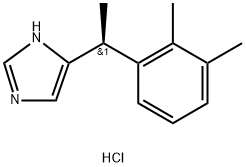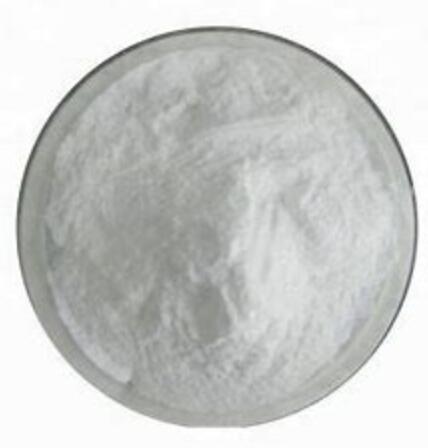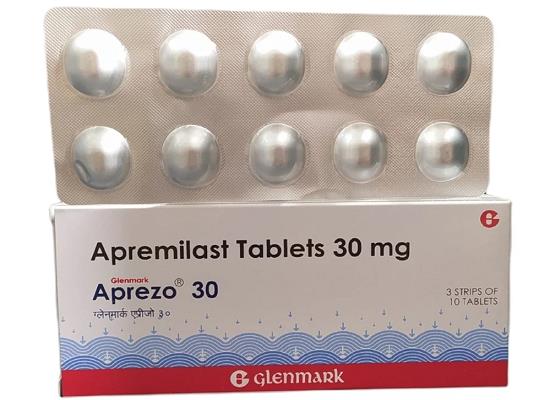Dexmedetomidine hydrochloride: Pharmacokinetic profile, pharmacodynamic profile and dosage
General Description
Dexmedetomidine hydrochloride is a medication with a predictable and linear pharmacokinetic profile. It exhibits linear pharmacokinetics when administered intravenously at doses ranging from 0.2 to 1.4 micrograms per kilogram per hour. The medication does not accumulate in the body, even with prolonged infusion. Dexmedetomidine hydrochloride undergoes rapid distribution in healthy volunteers and has a volume of distribution at steady state of 93 liters. It is extensively metabolized in the liver and excreted mainly in the urine. Dexmedetomidine hydrochloride is a highly selective a2-adrenoceptor agonist with sedative, analgesic, and sympatholytic effects. It is used for sedation in the ICU, with dosage based on the desired level of sedation measured by the RASS score. Certain contraindications exist for its use.
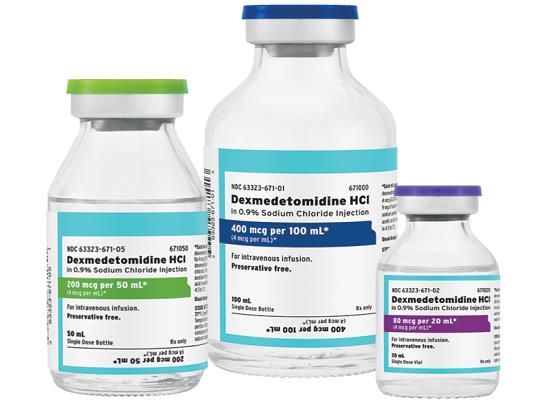
Figure 1. Injection of dexmedetomidine hydrochloride
Pharmacokinetic profile
Dexmedetomidine hydrochloride is a medication with a predictable and linear pharmacokinetic profile. When administered intravenously at doses ranging from 0.2 to 1.4 micrograms per kilogram per hour, it exhibits linear pharmacokinetics. Despite prolonged infusion for up to 14 days, Dexmedetomidine hydrochloride does not accumulate in the body. The pharmacokinetics of Dexmedetomidine hydrochloride can be described by a two-compartment disposition model. In healthy volunteers, it undergoes rapid distribution with a distribution half-life of approximately 6 minutes. In patients receiving Dexmedetomidine hydrochloride in the intensive care setting for over 24 hours, the volume of distribution at steady state is around 93 liters, plasma clearance is approximately 43 liters per hour, and the terminal elimination half-life is approximately 1.5 hours. Dexmedetomidine hydrochloride binds strongly to plasma proteins, with 94% bound predominantly to albumin. Dexmedetomidine hydrochloride is extensively metabolized in the liver through direct glucuronidation, N-methylation, and oxidation mediated by cytochrome P450 enzymes. These metabolic processes result in the formation of metabolites with negligible pharmacological activity. The majority (approximately 95%) of radiolabeled Dexmedetomidine hydrochloride is excreted in the urine, with less than 1% excreted unchanged. Caution should be exercised when using Dexmedetomidine hydrochloride in patients with hepatic impairment, as dosage adjustment may be necessary. However, the pharmacokinetics of Dexmedetomidine hydrochloride are not significantly influenced by age, gender, severe renal impairment, or race. No dosage adjustment is required for elderly patients, those with renal impairment, or individuals with different CYP2A6 metabolic rates. 1
Pharmacodynamic profile
Dexmedetomidine hydrochloride is a highly selective a2-adrenoceptor agonist with a range of pharmacological properties. It has well-established sedative effects, with dose-dependent sedation seen in healthy volunteers and intensive care patients. Dexmedetomidine hydrochloride induces sleep by decreasing the firing of noradrenergic locus ceruleus neurons in the brain stem and activating endogenous non-rapid eye movement sleep-promoting pathways. It also has analgesic effects, exerted at the spinal cord level and supraspinal sites, as well as through nonspinal mechanisms. Dexmedetomidine hydrochloride has sympatholytic activity, with significant reductions in plasma noradrenaline and/or adrenaline levels seen in healthy volunteers or postoperative patients receiving Dexmedetomidine hydrochloride. Dexmedetomidine hydrochloride has a biphasic effect on blood pressure, with decreased BP seen at low Dexmedetomidine hydrochloride concentrations and increased BP seen at high Dexmedetomidine hydrochloride concentrations. Heart rate decreases as Dexmedetomidine hydrochloride concentration increases, but there is no rebound hypertension or tachycardia after discontinuation. Memory is preserved in healthy volunteers receiving lower doses of Dexmedetomidine hydrochloride, and it does not result in clinically significant respiratory depression in healthy volunteers or intensive care patients. It preserves cognitive function in intensive care patients compared to propofol. 1
Dosage
Dexmedetomidine hydrochloride is approved in the EU for sedation of adult patients in the ICU. The recommended dosage is based on the desired level of sedation as measured by the Richmond Agitation-Sedation Scale (RASS) score. For patients who are already intubated and sedated, they may be switched to Dexmedetomidine hydrochloride with an initial infusion rate of 0.7 mcg/kg/h. This infusion rate can then be adjusted within a range of 0.2-1.4 mcg/kg/h to achieve the desired level of sedation. It is important to note that after adjusting the dosage, it may take up to 1 hour to reach a new steady-state sedation level. The maximum recommended dose of Dexmedetomidine hydrochloride is 1.4 mcg/kg/h, and this should not be exceeded. If a patient does not achieve the desired level of sedation with the maximum dose, alternative sedative agents should be considered. It is worth mentioning that there are certain contraindications for the use of Dexmedetomidine hydrochloride. It should not be used in patients with advanced heart block (grade 2 or 3) unless paced, uncontrolled hypotension, or acute cerebrovascular conditions. 2
Reference
1. Keating GM. Dexmedetomidine: A Review of Its Use for Sedation in the Intensive Care Setting. Drugs. 2015;75(10):1119-1130.
2. European Medicines Agency. Dexdor (dexmedetomidine): EU summary of product characteristics. 2015.
Related articles And Qustion
See also
Lastest Price from Dexmedetomidine hydrochloride manufacturers
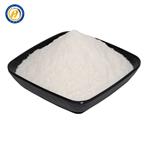
US $0.00-0.00/KG2025-12-05
- CAS:
- 145108-58-3
- Min. Order:
- 0.01KG
- Purity:
- 99%
- Supply Ability:
- 500
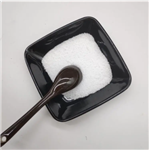
US $60.00-10.00/kg2025-11-03
- CAS:
- 145108-58-3
- Min. Order:
- 1kg
- Purity:
- 99%
- Supply Ability:
- 300tons
